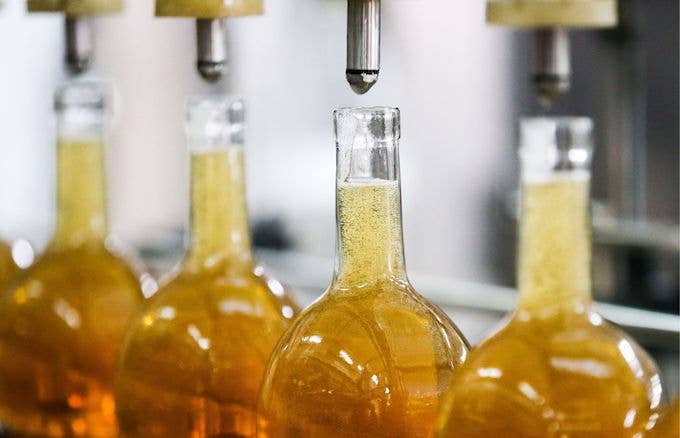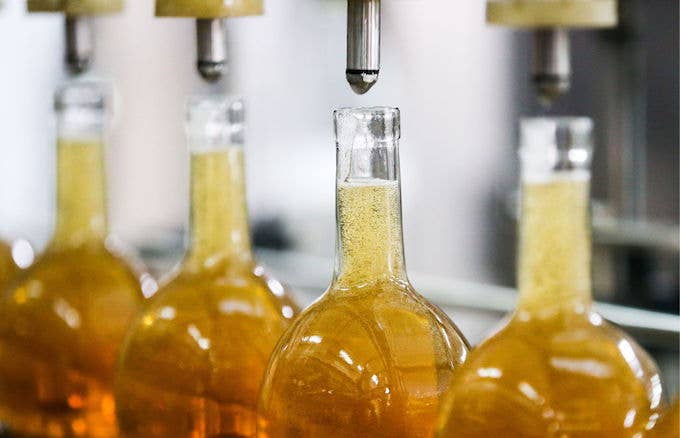
David Nutt, a scientist who oversees the neuropsychopharmacology unit at the Imperial College London, has devoted his career to the interdisciplinary science that studies how our brain is influenced by drugs. Nutt has been the subject of various reports in recent years for his development of Alcarelle—a synthetic substitute for alcohol that would provide the numbing sensation of booze without the health risks and the hangovers. Although the final product has been in the works for over a decade, according to a new interview in The Guardian, Nutt's final hurdle is bringing Alcarelle to the masses.
"The industry knows alcohol is a toxic substance," Nutt explained in the interview. "If it were discovered today, it would be illegal as a foodstuff. The safe limit of alcohol, if you apply food standards criteria, would be one glass of wine a year."
Nutt and his partner David Orren, are in the process of raising the £20 million needed to get Alcarelle into the market. Although he's spent his career calling attention to the harmful effects of alcohol, Nutt explains that he enjoys drinking moderately, however he hopes to see a healthier substitute find its place in the market. "I’m not against alcohol. I like it, but it would be nice to have an alternative."
The secret to Nutt's concoction is developing a molecule which stimulates certain receptors while avoiding negative side effects. "We know where in the brain alcohol has its ‘good’ effects and ‘bad’ effects, and what particular receptors mediate that – Gaba, glutamate and other ones, such as serotonin and dopamine," he explained. "The effects of alcohol are complicated but you can target the parts of the brain you want to target."
Additionally, Nutt says that Alcarelle will allow for modifications, allowing consumers to decide what kind and how drunk they would like to get, for example the difference between a casual drink at dinner and a long night out with friends. However, the biggest hurdle Nutt must get through is figuring out how to get the molecule into a drink. “The real challenge is taking that molecule to a drink," he explained. "The regulatory side is much harder than the science."
Because the product has yet to be tested, only Nutt, Orren, and other colleagues in the lab have tasted Alcarelle. The team of scientists have adopted a five-year plan for the molecule, which will likely be regulated as a food additive or ingredient. "There will obviously be testing to check the molecule is safe," Nutt said. "And we need to show that it’s different from alcohol. We will demonstrate that it doesn’t produce toxicity like alcohol does."

